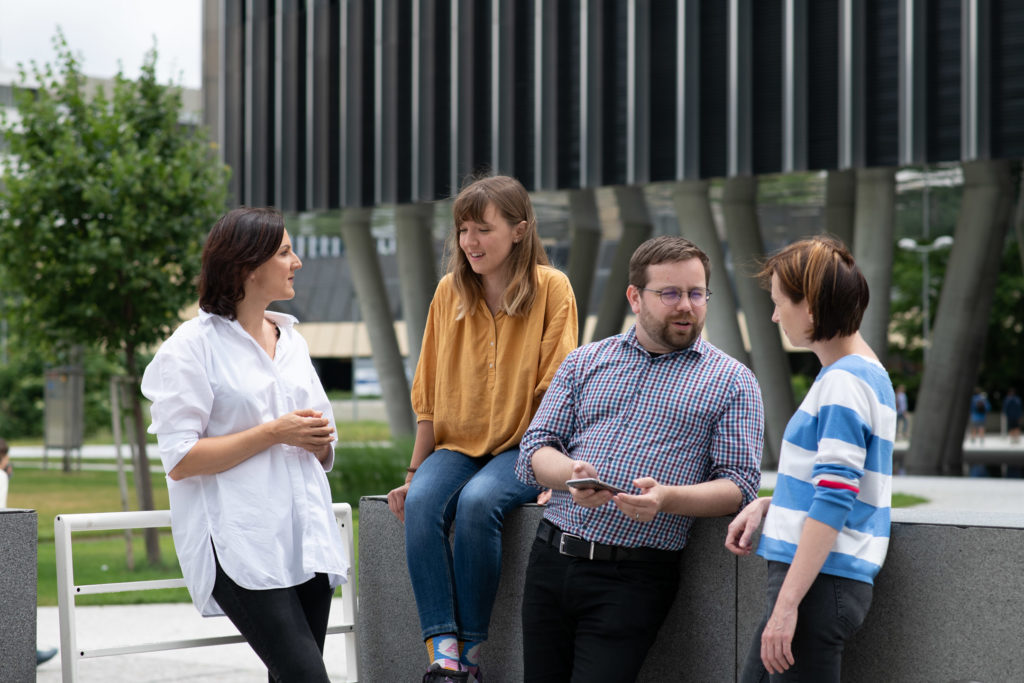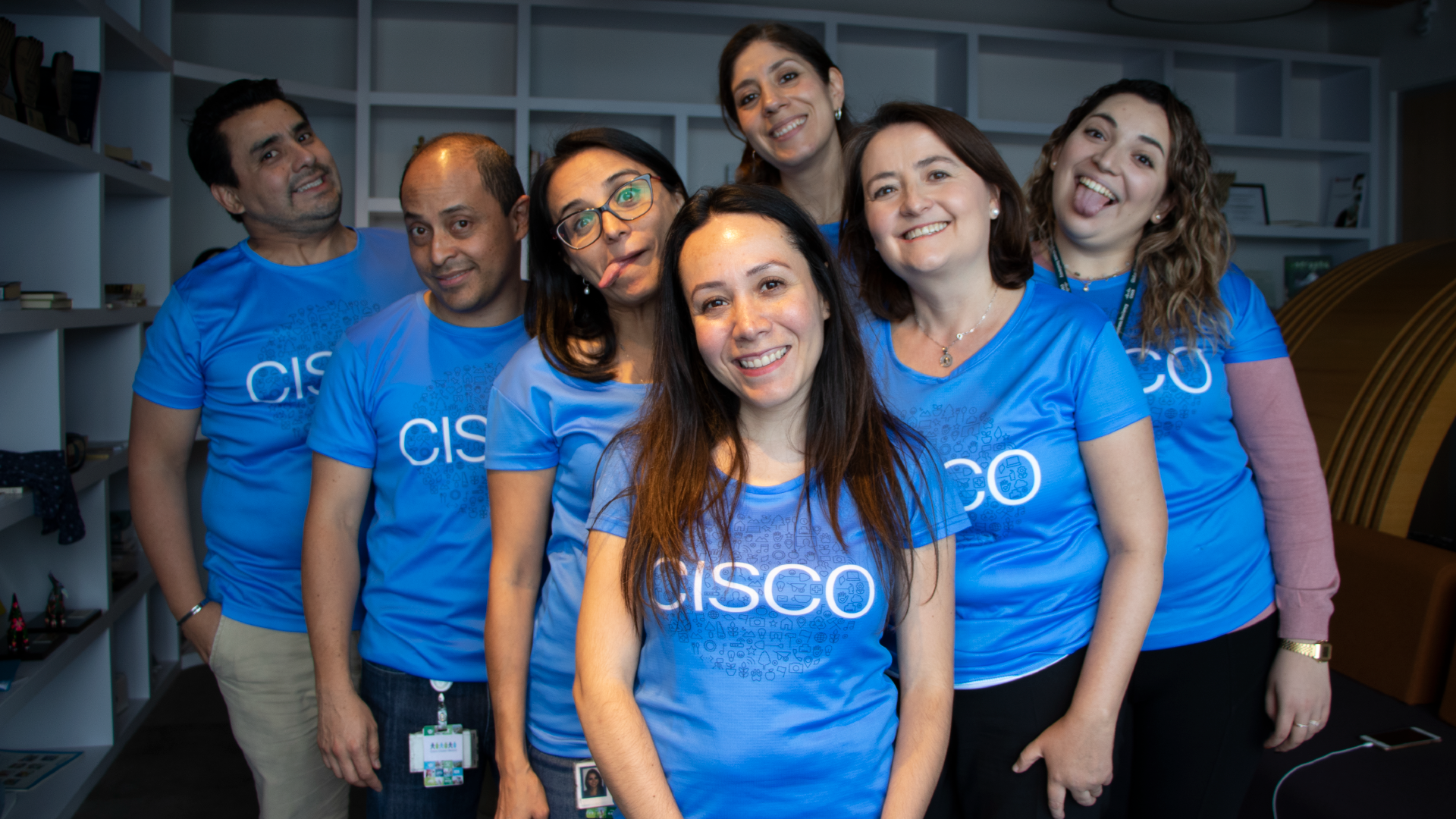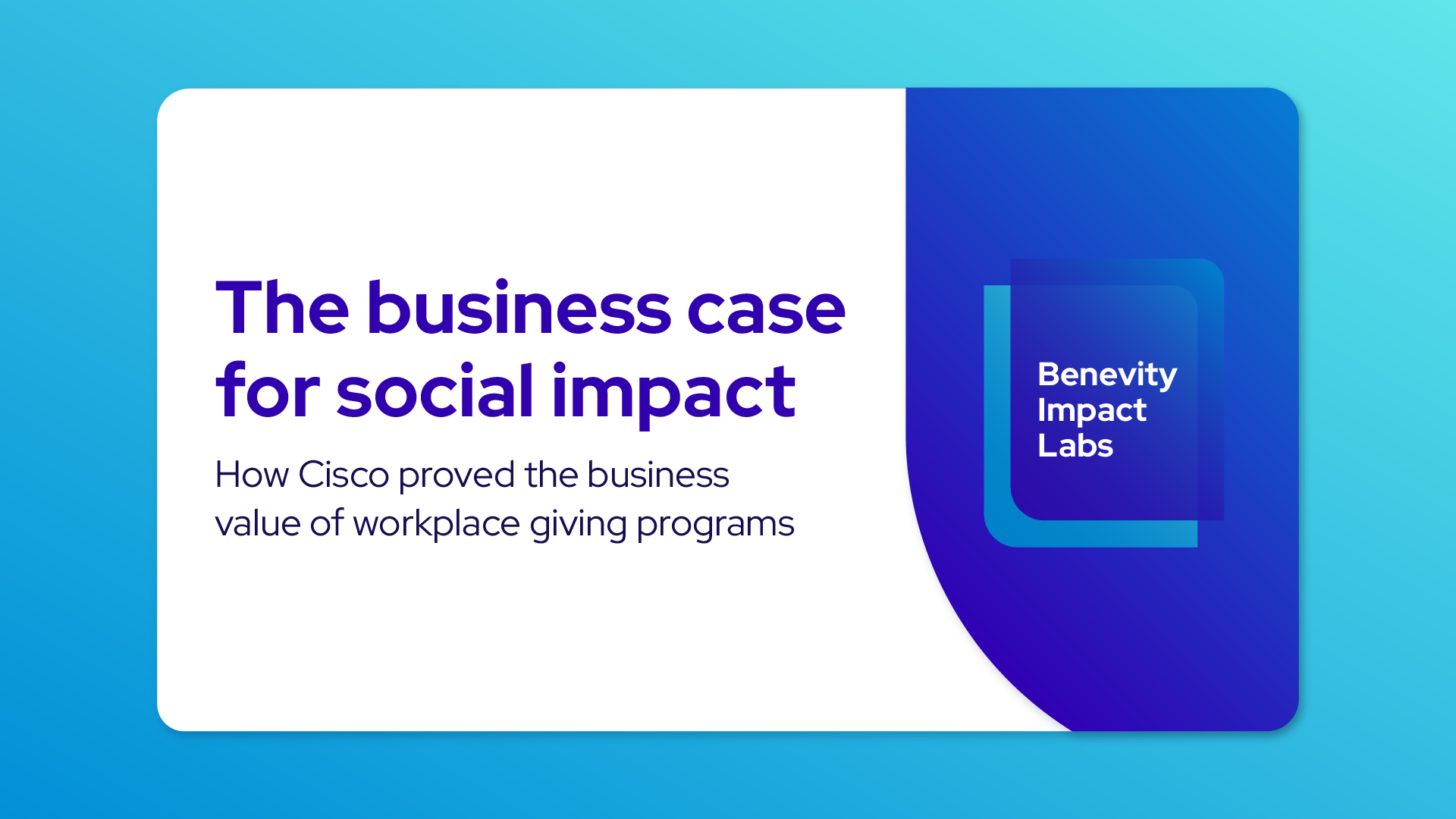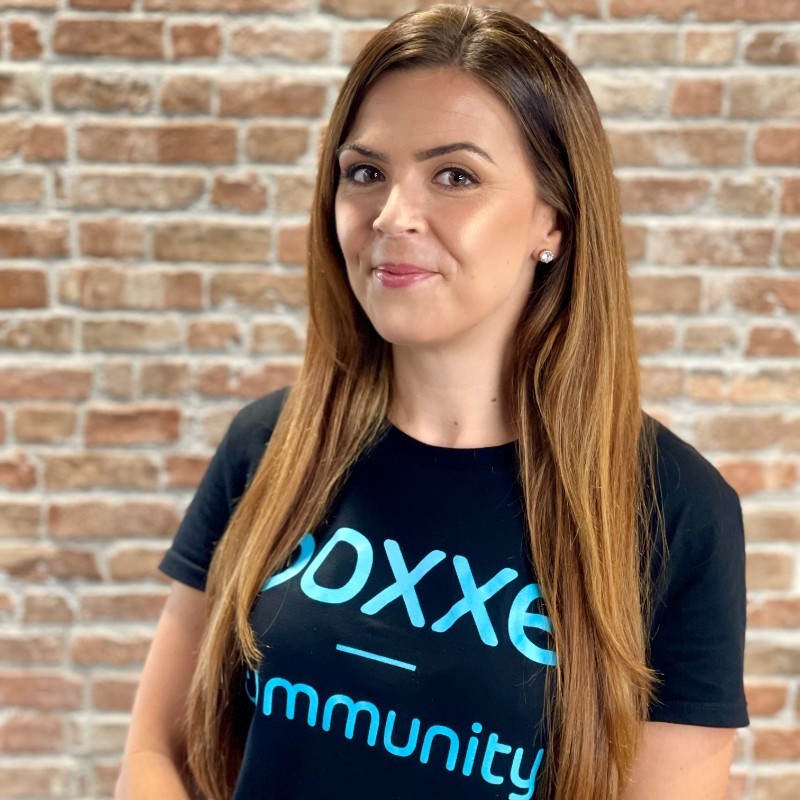
Julia Losekoot Szymańska
Community Relations Manager

Avast
Czech Republic
- skills-based volunteering
- trust-based philanthropy
- global CSR programme
Julia Losekoot Szymańska is the Community Relations Manager at Avast, a multinational cybersecurity software company that builds antivirus applications to help people feel safe online. Originally from Poland, Julia has been living in the Czech Republic for over 20 years, 14 of which have been spent working for Avast. Having filled a number of roles, she now forms a part of the foundation team and is responsible for driving Avast’s employee engagement programmes.
Programme Mission
With nearly 2,000 employees across the world, Avast was originally founded as a small, family organisation but has rapidly grown into an international corporation with a global input. Their overall mission as a company is to advance digital freedom and citizenship, which they approach in a number of ways through their philanthropic efforts.
Born from a grassroots desire to educate children on how to practice safe habits online, their dedication to this mission was first brought to life through Julia’s ‘Be Safe Online’ project. Following the success of this initiative, they decided to commit more time and resources to establishing a programme that would fulfill their corporate purpose of spreading digital freedom and citizenship around the world.
Julia said, “We as a team put our skills together and created a programme that Avast was willing to support. And this is when we started thinking about what we can do to take the know how we have and our set of skills that is quite unique in the cybersecurity space and give it back to the communities through different programmes. Our goal is to help the nonprofit sector elevate their digital skills to ensure that they know how to protect themselves against cyber attacks.”

Read on to learn how Julia and her team advance this corporate purpose by establishing trust-based partnerships with organisations that benefit from the technology and skills that Avast employees have to offer.
Transitioning towards trust-based philanthropy
As a corporate foundation, Avast provides support to partner organisations, but their philanthropic strategy does not follow a traditional, transactional approach. Rather, their intention is to seek out organisations that are embedded within their local communities and ask them to co-design what kind of support they would benefit from.
Julia said, “As an organisation, we provide the tools that help people protect their privacy online. But as a philanthropic organisation, we are really focused on how we can use the corporate funds we have to ensure that we are supporting individuals and NGOs all over the world. So we seek partnerships that enable us to get into communities that are empowered to tell us what issues they have and how they would like to fix them. There is, of course, a component of transaction, as we are funding the organisations, but it’s very much about trust-based philanthropy and working within the communities.”
This trust-based philanthropic approach ensures that the company is not only fulfilling their CSR goals but is collaborating with organisations that, within the fields of digital freedom and digital citizenship, are the best partners to create meaningful and impactful programmes.
All of this is about seeking a healthy balance between receiving funds from the corporation and having the independence to build worthwhile partnerships that make a real difference in the community. And this is a method that Avast Foundation would like to inspire the whole CSR sector will likely transition towards in coming years.
“This is where we see that the real engagement is happening because our employees believe that they already know and trust the organisation and there is a feeling of connection with the cause and with the people that work for the charities.”
Julia Losekoot Szymańska, Community Relations Manager at Avast
This sort of bottom-up approach enables their employees to get closer to the causes that they care about, bringing the company’s corporate purpose to life in a real way on a daily basis. And it doesn’t end with their philanthropic efforts. They also apply the same approach to their employee engagement initiatives, which are based on the preferences and interests of their workforce.
“Our approach is very much bottom-up because we want the communities to be fully embedded in the programme...So the impact is much greater because they actually know their own needs and how to fix them – and we are just providing them the platforms, tools, and funds to achieve their goals.”
Julia Losekoot Szymańska, Community Relations Manager at Avast
Committing to this approach means upholding a certain freedom for their employees to engage with organisations that they want to support. Julia and her team do this because they want not only the organisations but also the employees themselves to see the value and feel empowered to connect with causes that are meaningful to them.

This model means the company has a highly engaged and motivated workforce that are committed to contributing to their local communities.
But this positive company culture doesn’t come about on its own. Let’s take a look at how Avast launched a strong employee engagement programme with the help of a number of effective CSR strategies.
Starting out strong: How Avast launched their successful employee engagement programme
With employees spread across the Czech Republic, Serbia, Slovakia, Germany, the US, and more, Julia and her team knew it was important to establish a programme that would reach their geographically and culturally diverse work force.
At the start, Julia and her team worked with their employee resource groups (ERGS) to build campaigns that would be inspiring for each specific region. To do this, they regularly ran surveys among employees, inviting staff to give feedback on their volunteering impressions and preferences. They also asked team members to nominate organisations that they would potentially like to support, which helped the company to create a database of relevant activities and organisations around the world.
This was extremely helpful once they decided to bring all of this work together into one, online space with the help of a CSR platform.
With Benevity, a platform that gives Avast employees direct access to volunteering and giving opportunities within their area, the company is able to connect all of their employees in one space that is completely dedicated to doing good.
“When we launched with Benevity, we were super surprised how high the interest was. After the initial campaign, when we introduced the programme and the Benevity product internally, we had roughly 500 people sign-up within the first few weeks. Then, we offered a live demo of Benevity...we had over 200 participants.”
Julia Losekoot Szymańska, Community Relations Manager at Avast
To ensure a high-volume of engagement on the platform, they launched with a voucher campaign: all staff members that logged their volunteering hours on Benevity during a certain period of time received a $100 voucher that they could donate to one of Avast’s preselected NGOs.
Julia said, “We try to use the functionalities that the platform provides us to connect with our employees. For example, we are running a fundraising campaign with donation matching, so every donation made by staff will be matched three times until we reach our dedicated budget. The Benevity platform gives us a spectrum of ways to support different organisations across the globe, which is our approach.”
From volunteering to giving to doing good, Avast employees have really made the most of the available opportunities on the platform.
“I think that the first thing that people connect with on the Benevity platform is the Micro-Actions. This is something that appears on the homepage so people click on it and instantly get involved. That was the easiest and the most instant engagement.”
Julia Losekoot Szymańska, Community Relations Manager at Avast
It’s important to note that Julia and her team never viewed the launch of their programme with Benevity as a one-time campaign. In fact, they set the intention early on to talk about their campaigns on a regular basis – weekly if not daily.
Other communication channels that they use to get people not only on the platform but engaging with their campaigns include:
- Weekly mention in the HR all-company newsletter, with a special focus on skills based volunteering as a learning and development opportunity
- Short presentation during the Company All-Hands with internal endorsements from executive management
- Slack with dedicated channels to the foundation as well as the company updates channel where they communicate with the broader audience
- Short video manuals that show real organisations that can be found on Benevity so that viewers can see in two or three minutes exactly what they can expect when using the platform
To further drive participation in their programme, Avast also deployed a Champions strategy, which helps them to spread their programme everywhere that they have a presence.
Leveraging programme Champions to spread goodness around the world
Sitting between engagement and communication methods, the Champions model is a powerful strategy for improving participation in one’s programme – particularly for a workforce with a global presence. Because of their broadly located team, Julia wanted to establish geographical representation in each area to create a two-way communication channel with all teammates.
For that reason, she and her team connect with local staff members in each culture who can not only help discover organisations in the area – but also “champion” the programme by encouraging others to get involved.
Julia stated, “It really helps a lot to have a person that is dedicated to working with the employees. So what we do is establish sort of network of ambassadors or Champions that help us across the organisation. They are more embedded with, first of all, different teams – but also different locations. They are also helping us to develop the relationships with the NGOs and with the staff internally to promote the activities that we are preparing together. It also gives us different perspectives and constant feedback on how we can move forward with the programme, and it’s something that we commit to doing long-term because we see massive value for everyone involved.”
This model has been fruitful for Avast, as it helps them to tailor the programme to each region and improve offerings based on the direct feedback they receive from Champions. For example, one trend that they’ve seen from their programme is an interest in skills-based volunteering. With this information, they can constantly refine the available opportunities on the Benevity platform by putting a focus on this kind of employee contribution.
Encouraging employees to donate their skills to good causes
“We see skills-based volunteering as a master opportunity for our staff to develop or improve certain skills that they might not have the opportunity to develop at work...it’s great that with Benevity we get feedback because we can see in the data what is engaging our employees.”
Julia Losekoot Szymańska, Community Relations Manager at Avast
According to Julia, the benefits of skills-based volunteering are mutual. She finds this is particularly true when it comes to mentoring, which has grown in popularity among Avast staff. While young people get support and mentorship from a recognised corporation, employees also have the opportunity to test their leadership skills and see what it’s like to mentor someone in a friendly and safe environment.

Plus, this kind of volunteering can all be done in a remote working environment, meaning employees are not restricted by location.
Julia shared, “Skills-based volunteering is something that helps our team members to connect when they’re not easily able to participate in other initiatives that are taking place physically – so they can do it remotely. We also see it as a sort of prevention measure from burnout because it changes your routine. When you’re constantly doing the same things and then suddenly you have the opportunity to do something completely different – that gives people a lot of satisfaction and motivation to work for the organisation because you see that your work makes an impact and it’s meaningful for everyone involved.”
Results
Since launching their employee engagement programme with the Benevity platform, Avast has seen:
- 500 Benevity sign-ups in the first 2 weeks of launching
- 40% of staff signed-up for Benevity within the first 2 months of launching
- Nearly 400 volunteering hours reported through the first 4 months since launching the platform.
Tips & Advice for other companies
- Don’t be afraid to experiment. Some things will fail, some programmes won’t run well. But that’s also great for the learning process.
- Communication is worth investing in.
- Make use of the bottom-up approach. If you include some elements of it in your programme, it will be so much more beneficial: you end up designing programmes that people want to get involved because it represents their voice.
Or check out

New Exclusive Data Reveals All-Time High Corporate Social Responsibility Impact ...
Benevity appoints Christopher Maloof as CEO to lead its next phase of growth New leadership to steer the company’s enterprise impact platform vision and dr...

New Benevity report shows how employee engagement in CSR programs improves busin...
New research shows how Cisco increased social impact participation, driving business benefits like improved employee retention, higher promotions and bette...

How Cisco proved the business case for social impact
The State of Corporate Volunteering 2024 unpacks the latest trends and benchmarks in volunteering programs, with data and insights from 450+ companies.





















